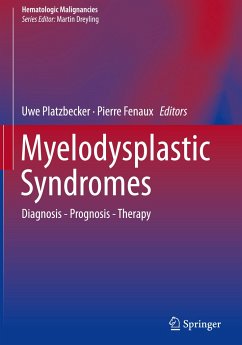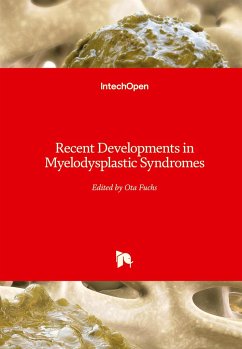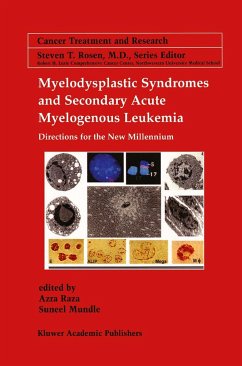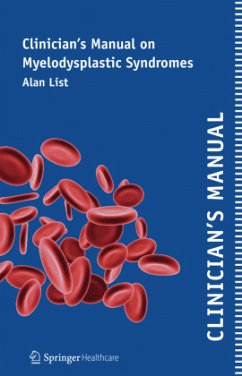
Update on Myelodysplastic Syndrome
An Essay Submitted for Partial Fulfillment of The Master Degree in Clinical and Chemical Pathology 2008
Versandkostenfrei!
Versandfertig in 6-10 Tagen
39,99 €
inkl. MwSt.

PAYBACK Punkte
20 °P sammeln!
Myelodysplastic syndrome comprises a group of clonal hematologic disorders characterized clinically and morphologically by ineffective hematopoiesis. It is viewed by most hematologists as encompassing stages of neoplastic hematopoiesis associated with cytopenias and as excluding nonneoplastic conditions. Neoplastic transformation of hematopoietic cells can occur at various levels of stem-cell development. The initial hematopoietic stem cell injury can result from cytotoxic chemotherapy, radiation exposure, viral infection, chemical exposure, or genetic predisposition. A clonal mutation predomi...
Myelodysplastic syndrome comprises a group of clonal hematologic disorders characterized clinically and morphologically by ineffective hematopoiesis. It is viewed by most hematologists as encompassing stages of neoplastic hematopoiesis associated with cytopenias and as excluding nonneoplastic conditions. Neoplastic transformation of hematopoietic cells can occur at various levels of stem-cell development. The initial hematopoietic stem cell injury can result from cytotoxic chemotherapy, radiation exposure, viral infection, chemical exposure, or genetic predisposition. A clonal mutation predominates over bone marrow suppressing healthy stem cells. The decision about how to deal with the morbidity of the disease versus the potential benefits and toxicities from treatment will ultimately be made by the individual patient. This decision is based on age, personal preferences, and available information about disease biology and prognostic factors. The aim of the present work is to review recent advances in myelodysplastic syndrome as regard molecular pathogenesis, diagnosis, classification and treatment.












